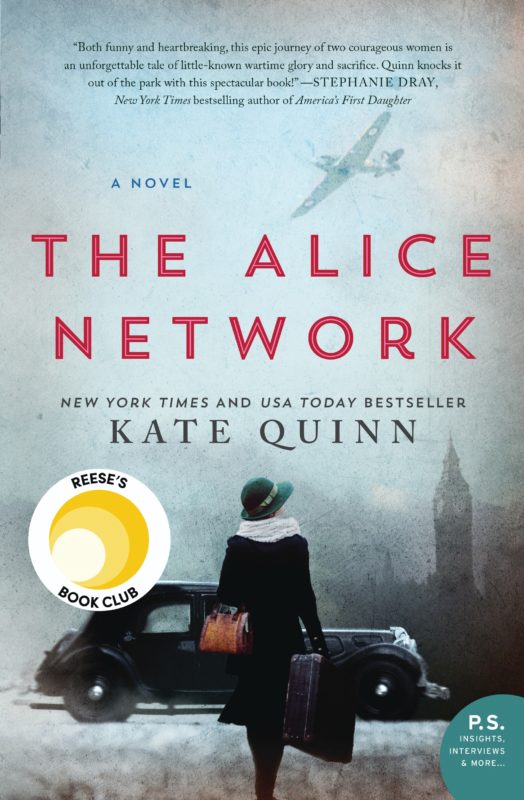There’s a bit in “The Avengers” where Cobie Smulders/Agent Maria Hill asks Robert Downey Jr./Tony Stark “When did you become an expert in thermonuclear dynamics?” and he deadpans, “Last night.” That’s pretty much what it’s like to be a historical novelist: the sinking realization that you need to become an expert in some new historical period, epoch, or event—and this needs to happen immediately, or your next book/next chapter/next paragraph will never happen, either.
As I set about researching The Alice Network (diving into a new historical era means major, major, MAJOR research mode) I realized that there are four distinct research phases involved in writing a historical novel. Each has its own delights and hazards…
The Dog-Paddle comes first. You have a new book idea, probably something rather vague and unformed, and you’re reading everything you can get your hands on about Murano glass-blowers or the reign of Frederick the Great or Finnish lake mythology. This is the stage where you grossly over-use the One Click Buy feature on Amazon as you load up on used research texts to dog-ear and underline; you also make dire use of the “Customers who bought X also bought Y” feature. Your plot hasn’t firmed up yet, so right now everything is grist for the imagination, and blinding flashes of inspiration come from random footnotes. You have no idea what will be useful, so you read it all, dog-paddling in leisurely fashion through an ocean of sometimes only barely connected reading material, daisy chaining from a book about Polish airmen in World War II to the bombing of London to the building of St. Paul cathedral, and realizing that with a single brilliant plot twist you can tie it all together in one smash-hit novel. This is the fun stage.
Stage two is The Deep Dive. You have your book idea; the era and plot are chosen. Now you need to narrow your focus; understand EVERYTHING about the historical period and events you will be covering. This is where you read every account you can find on the Battle of Crecy or the early life of Machiavelli. You want the picture in your mind as complete as possible before you start playing on that historical stage. It’s easy to get lost in the research here, because no historical picture will ever be complete. There’s always more to know. At some point you have to stop researching and start writing.
Stage three is The Fast Patch. This is when you’re in the throes of writing, and hit a road-block. You cannot go any further in this chapter until you have accurately figured out the mechanical innards of a Pe-5, or figured out what boat will get your hero out of Dunkirk alive. So you repair to the books, the web, and the library for a quick research fix. You don’t need to dive deep here, find out every conflicting opinion out there on the building of a Pe-5 or every single kind of boat used at Dunkirk. You just need a fast, reliable bit of historical information that will bridge the gap to firmer, more well researched ground.
Stage four, and most dreaded of all, is The Rabbit Hole. This generally comes in the editing phase, the stage where you are tearing your manuscript apart in a haze of caffeine-fueled paranoia, fact-checking everything just to be sure you are catching every single historical error that could possibly have sneaked in there. This is when you stay up till 3am trying to figure out exactly when buttons replaced ties on women’s dresses. This is when you obsess over whether there were black bears or brown bears in Imperial Rome-governed Dacia. This is when you calculate centuries-old lunar cycles in an effort to see if your heroine really could have been looking at a full moon that night. This is the stage where you vow to take up a career as a clam-digger or a burger-flipper—anything but a historical novelist.
Until the book is off to your editor, and you start thinking about the next book, and a wonderful vague idea hits. Something about Shakespeare’s Dark Lady and the Grail myth . . . and then there you are, one-click buying on Amazon for all you’re worth, happily anticipating when your new research books will arrive, and thinking that you have the best job on earth.







